Exclusive
The naira cost of Katab and Fulani hugging each other in southern Kaduna
Published
9 years agoon
By
Olu Emmanuel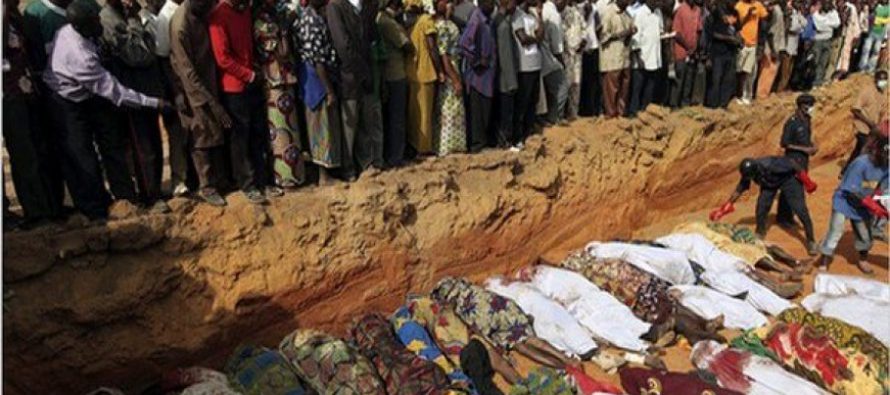
The Nigeria police choppers are hovering in the sky above southern Kaduna now. On the ground, body counts have rallied up t0 26 following the renewed clash reported in the Christian-majority part of the northwestern state two days ago.
It’s a trend, going by history of Kaduna. And the southern part has always been on the boil—from 1980 to the 1992 Zangon-Kataf riot, up till December 2017. And for now, it appears there’s no end in sight to the spiral of violence.
While the Martin Luther Agwai committee Gov. Nasir el Rufai set up in 2015 could trace 12 major ethno-religious crises in Kaduna in the last 37 years, social commentators have counted 28 between 1980 and 2012.
And the scale of violence then—about religion, ethnicity, politics—cannot compare with the current level of bloodshed. For instance, 100 people were killed in the 1992 incident in Zangon-Kataf. It hit authorities so hard Gen Ibrahim Badmos Babangida, then president, announced his junta would revoke emergency powers, such as were used during the civil war, to deal with the bloodbath.
But for the December incident, casualty figures were initially pegged at 800 people dead, according to a report coming from the Catholic Church. No fewer than 1,422 houses, 16 churches, and 19 shops were torched by the attackers suspected to be Fulani herdsmen. The government has done nothing drastic yet.
The National Emergency Agency disputed the figure, though. According to NEMA, only 204 people were killed—as if to temper the bloodiness of the incident which the National Peace Committee said was capable of tipping the entire nation into crisis.
“We are reaching a situation in the country where human life doesn’t mean anything to people and this is wrong,” said former President Abdulsalam Abubakar. He led the committee to sympathise with Kaduna el Rufai in January.
The wrong doers, certainly, are many. They cut across all the divides—religion, tribe, and politics.
As for religion, the most significant event dates back to the 1992 religious riot in Zangon-Kataf. Retired military administrator Gen. Zamani Lekwot, a Christian, was arrested along with other suspects, and probed by a committee Babangida set up in the wake of the violence. Zamani couldn’t be pinned down to any offence, but another tribunal, largely composed of Muslims, investigated, convicted, and sentenced him to death. Public outcries eventually made the regime commute the sentence to jail terms.
Zamani was pardoned three years after, but the scar caused by social dislocation. cannot be erased on the landscape. For fears, the Christians in the region, largely Katabs, had to migrate and hurdle in certain areas, and Moslems, too, had to relocate.
While most people, especially critics of the el-Rufai administration, believe the southern Kaduna Christians have the odds always stacked against them, the Moslems there are not entirely at ease.
“Muslim communities in the area have been living in difficult conditions due to the persistent state of provocation and insecurity including intimidation, premeditated violence and bloodletting,” a press release by Muslim organisations in southern Kaduna stated.
According to the Muslim Youth Foundation of Southern Kaduna (MYFOSKA) and Jama’a Foundation Kafanchan Chapter), the crises have resulted in mass killings and total displacement of Muslim communities in Zangon-Kataf, Zonkwa, Matsirga, Unguwan Rimi Baju, Kwoi, Jaban Kogo, Gidan Maga have been witnessed in the last three decades
Series of panel reports have established that politicians play on religion to press their cases, too. The Agwei panel traced the current Fulani-led attack to the 2011 election at both the state and federal levels. The Fulani, according to the reports, lost loves and cattle in attacks that followed the 2011 polls. The herdsmen are now carrying out reprisals—in spite of the compensation El-Rufai claims he paid to them.
All of these, social scientists that have studied the Kaduna problem believe, make it difficult for people to live together. For instance, the Fulani communities have always been dismissed as squatters. And it appears to hurt them being regarded as such.
“Fulani have been part and parcel of Southern Kaduna for over 400 Years,” the Muslim groups said. “It is on record that they founded Jama’a Emirate circa 1804.”
To stop discriminating has been the moral solution peacemakers always bring forward. “We must live together, we must find solution to the problems to sit down and talk to ourselves because there is no problem that cannot be solved when you are talking to each other,” Abdulsalam said.
But the natives—largely earth-bound—are not sold on yielding the heirloom to some wandering strangers attacking them every now and then. There have been calls for the Christians there to bite back. Which is already happening.
According to the groups, a Fulani leader (Ardo) initiating a peace move in Ninte went in January went the district head office to assure the community of their desire to pay compensation to farmers whose farms were destroyed by herdsmen. . “Unfortunately, he was attacked and killed by irate youths in the presence of the district head and other community members.”
El-Rufai has threatened to deal with the Christian leaders making those calls—while, many point out, he has yet to deal with Muslim leaders instigating attacks on others.
Another option on the card is compensation. Critics don’t like this peace deal, though. Kaduna Sen. Sheu Sani believes it is bad governance spending federal allocations to keep Fulani herdsmen happy.
But pacifists will, as always, agree no price is too big for peace.
You may like
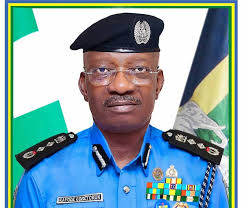

List of indigenous Inspector General of Police in post-independence Nigeria


Anambra State gets new Police Commissioner
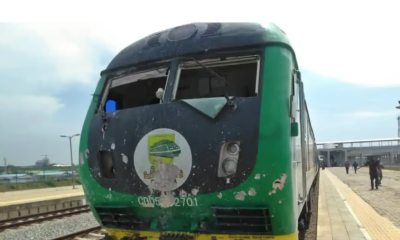

Mandi, mastermind behind Abuja-Kaduna train attack arrested
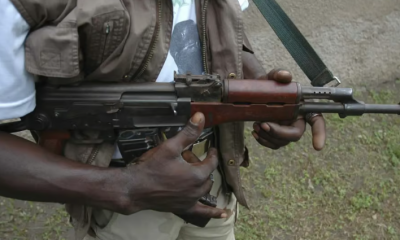

Gunmen invade Kogi community, raid houses, kill scores
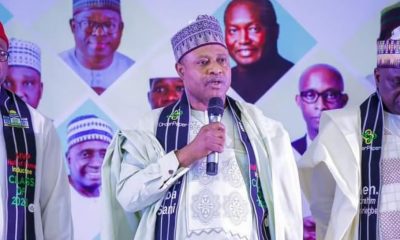

Sani set to resettle displaced southern Kaduna communities


Update: Police arrest cops for N30m extortion in Abuja
Trending

 Entertainment6 days ago
Entertainment6 days agoSimi addresses resurfaced 2012 tweets amid online backlash

 Health1 week ago
Health1 week agoSCFN, LUTH introduce bone marrow transplants as curative treatment for sickle cell

 Health4 days ago
Health4 days agoDeclassified CIA memo explored concealing mind-control drugs in vaccines

 Football1 week ago
Football1 week agoHarry Kane nets brace as Bayern edge Frankfurt 3–2 to go nine points clear

 Football1 week ago
Football1 week agoLate Flemming header stuns Chelsea as Burnley snatch 1–1 draw at Stamford Bridge

 Crime5 days ago
Crime5 days agoSenior police officers faces retirement after Disu’s appointment as acting IGP

 Education6 days ago
Education6 days agoPeter Obi urges JAMB to address registration challenges ahead of exams

 Crime1 week ago
Crime1 week agoTwo killed, seven injured in early-morning shooting in Richmond’s Shockoe Bottom

